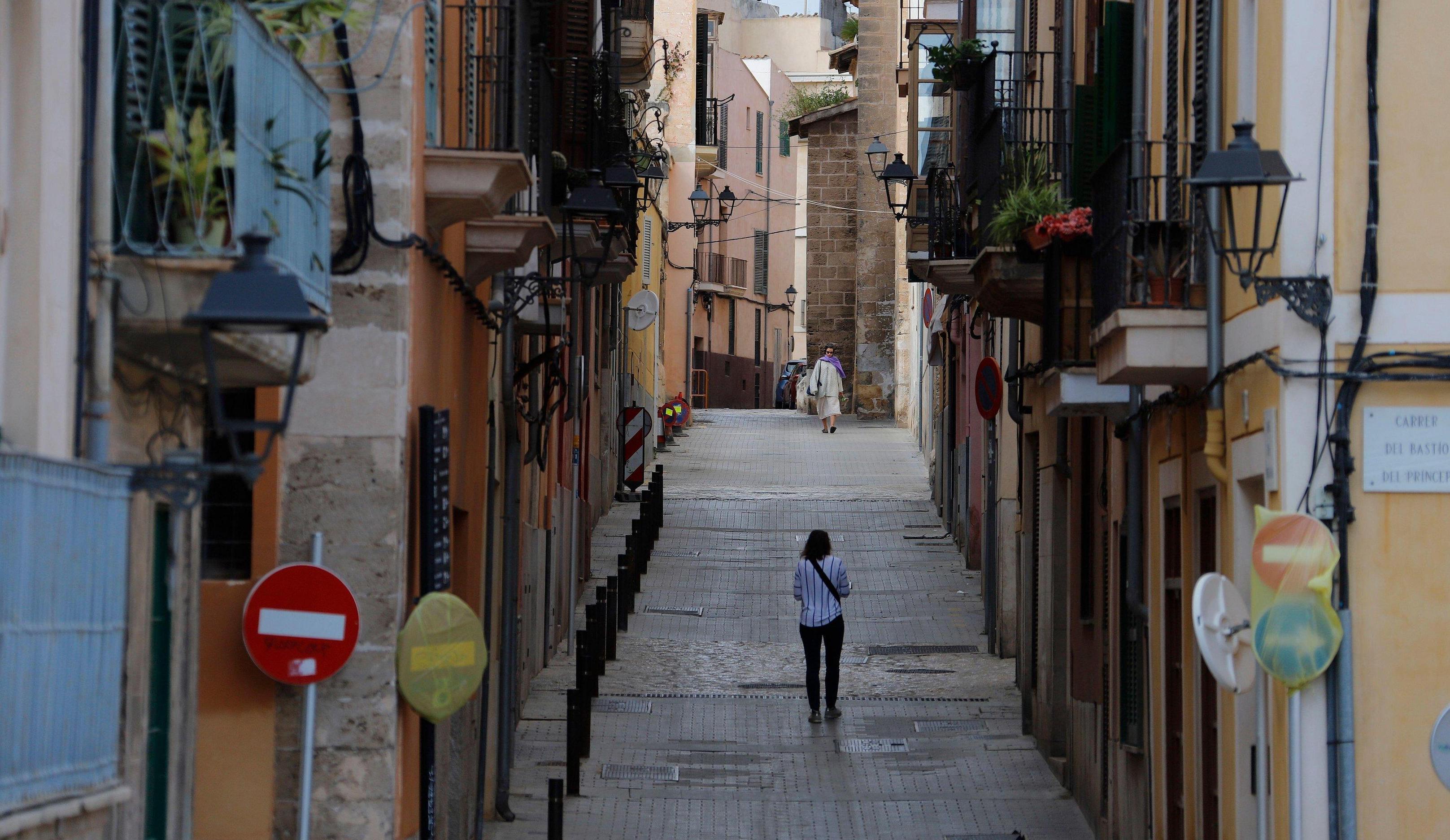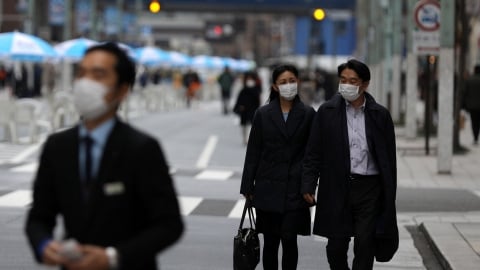On March 18th, nearly 1,000 passengers from Europe and 5,700 from ASEAN countries arrived in Vietnam on flights. According to a representative of the Noi Bai International Airport Border Police, the majority of these 1,000 passengers were Vietnamese citizens returning from the UK, France, Germany, Russia, etc.; a small number were foreigners. But that's the story of those who wanted to return home and were fortunate enough to do so after much effort. What about those Vietnamese who remained behind? Some desperately wanted to return but the city was under lockdown, some couldn't buy plane tickets, and others chose to stay.
Stuck in a city under lockdown.
That's the story in Italy, where on March 9th, Italian Prime Minister Giuseppe Conte announced that the entire country would be placed under lockdown until early April. Italian citizens were asked to stay at home, and public gatherings and Serie A football matches were banned.
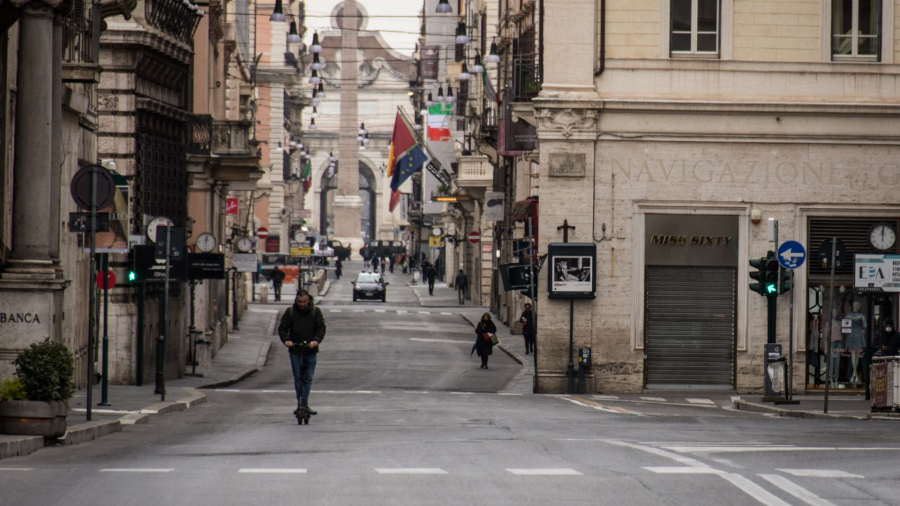
A rare sight of deserted streets in Italy.
When this unprecedented measure was implemented, the Mediterranean country had already recorded 463 COVID-19 deaths out of a total of 9,172 infections. This lockdown was imposed after a slow response from the government, which prevented many Vietnamese students and residents in Italy from planning their return to Vietnam.
As Mai, a student at the University of Trieste, shared, life is now confined to four walls; all food and other necessities are ordered from supermarkets, and sometimes it takes two weeks for delivery.
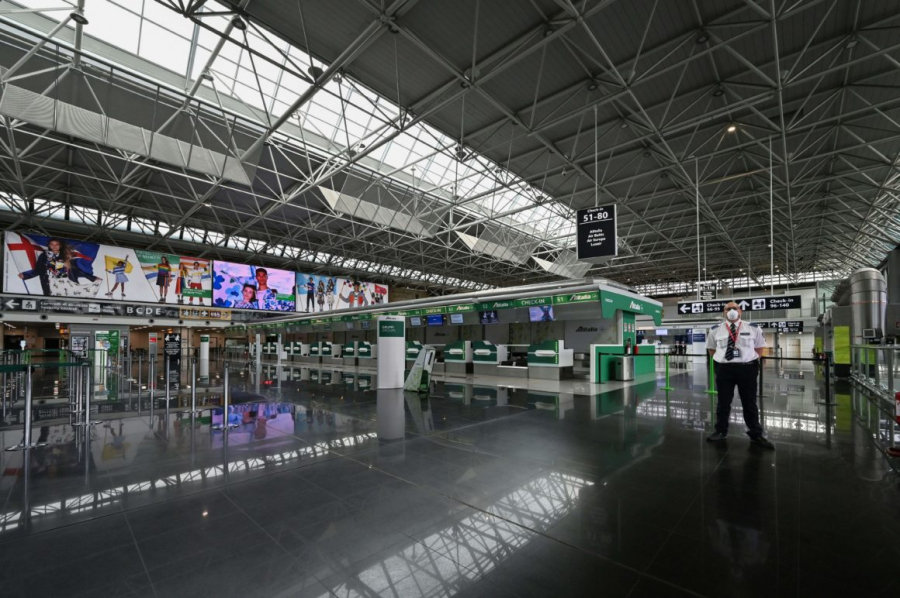
Public transport is on lockdown.
After an initial surge in demand that overwhelmed supermarkets, Italians are no longer hoarding goods, so essential items are not scarce. If you go shopping, stores no longer allow customers inside; instead, customers stand outside and place orders, then staff deliver the goods and collect payment through the door.
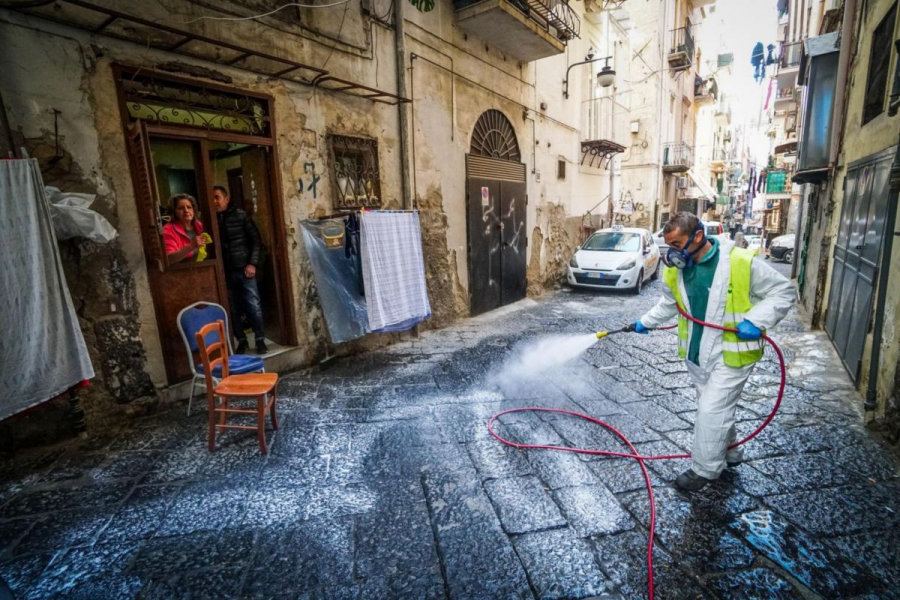
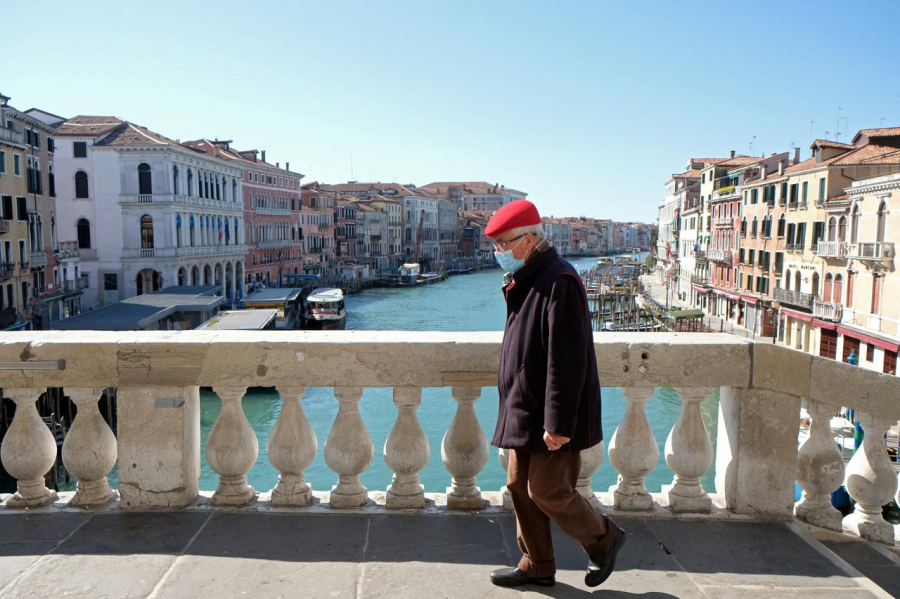
It is known that Italy has also opened many free services for students during this time so that they can stay at home with peace of mind, such as: opening an online e-book library, free delivery, and reducing some study-related expenses.
Unable to buy tickets in time.
Similar to Italy, the situation in France is also experiencing significant negative changes. Large-scale protests continue in France, particularly in Paris, rendering many efforts to prevent the spread of the disease meaningless. Bang Thanh, a master's student in Paris, said: “Up until March 16th, French citizens were still taking to the streets to protest without masks or any other protective measures. These protests caused a rapid increase in cases in Paris, forcing the authorities to impose a lockdown.”
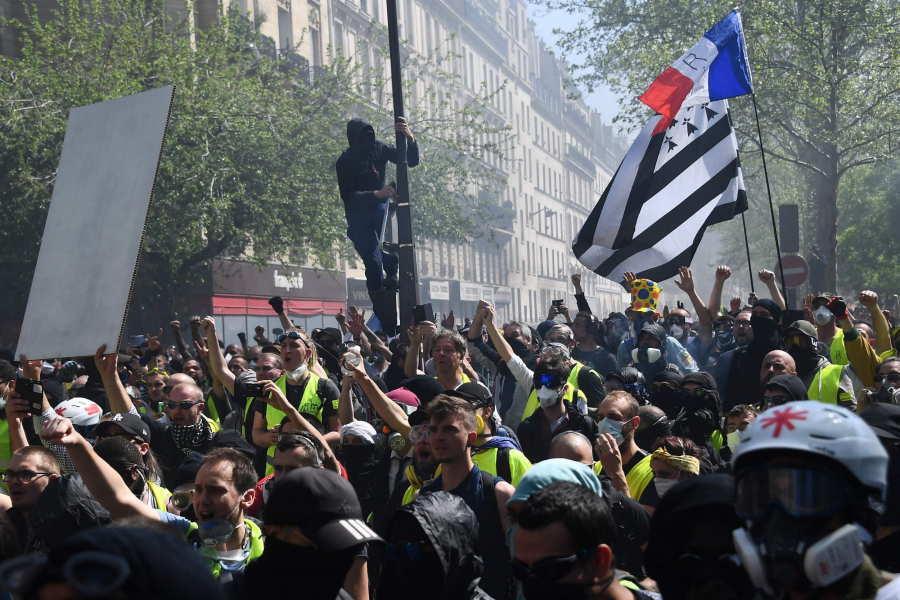
The large protests last weekend caused a sharp increase in Covid-19 infections in Paris.
Like many other international students, Thanh had planned to return to Vietnam: “According to the initial announcement, Vietnam Airlines would have its last flight on March 25th, so I bought my ticket for March 22nd because if I went earlier, it would be very crowded, increasing the risk of cross-infection.” That was the initial plan, but ultimately, due to the sudden lockdown order, the last flight to Vietnam had to depart on March 17th, causing Thanh to miss the opportunity to return home despite having prepared everything.
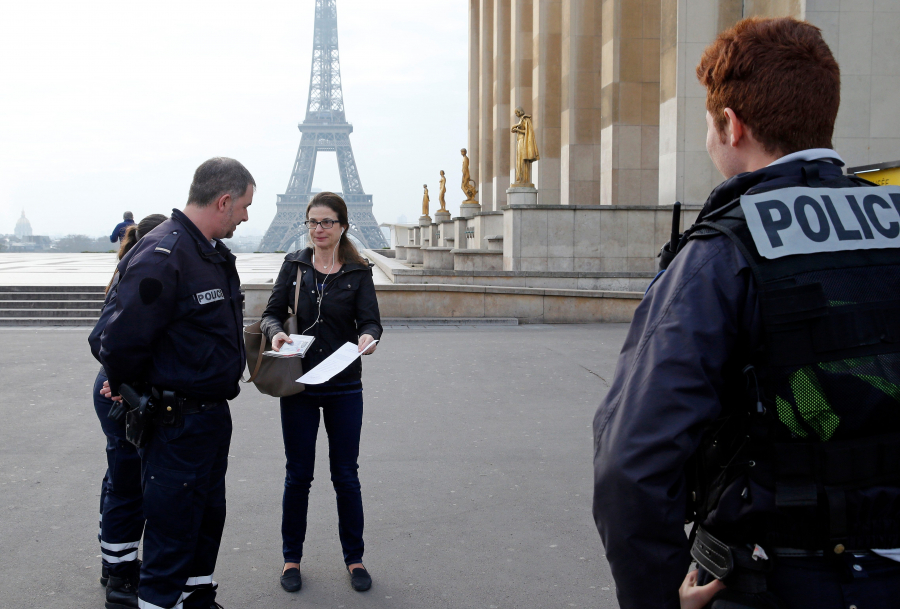
Residents must present their travel documents every time they leave their homes.
Many other international students are in a similar situation and have to find ways to protect themselves from the somewhat overwhelmed healthcare system in France at this time. After the lockdown order, all French citizens are not allowed to leave their homes without a travel permit issued by the local authorities through an online system. Any movement is monitored by police on the streets. Shopping at supermarkets is also controlled, with people allowed to enter in groups of 10 at a time and stand 2 meters apart when paying.
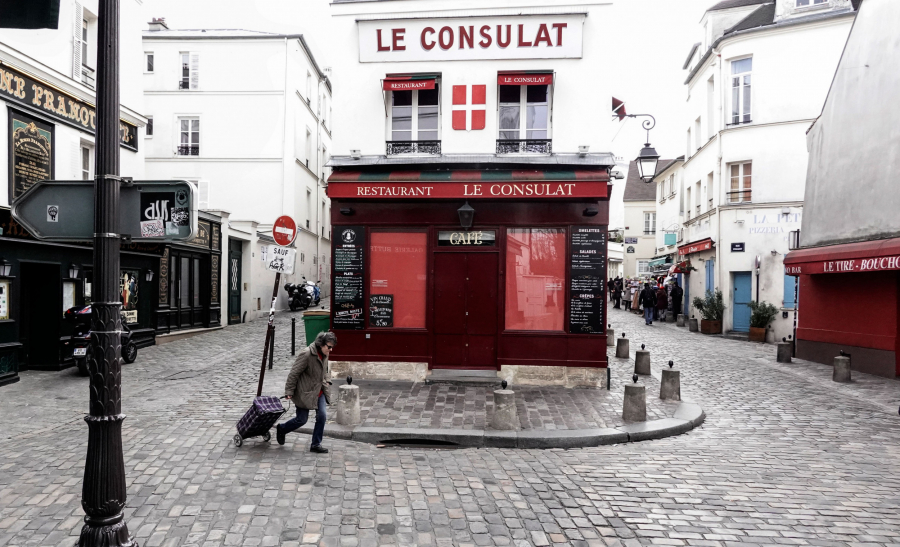
The streets are deserted...
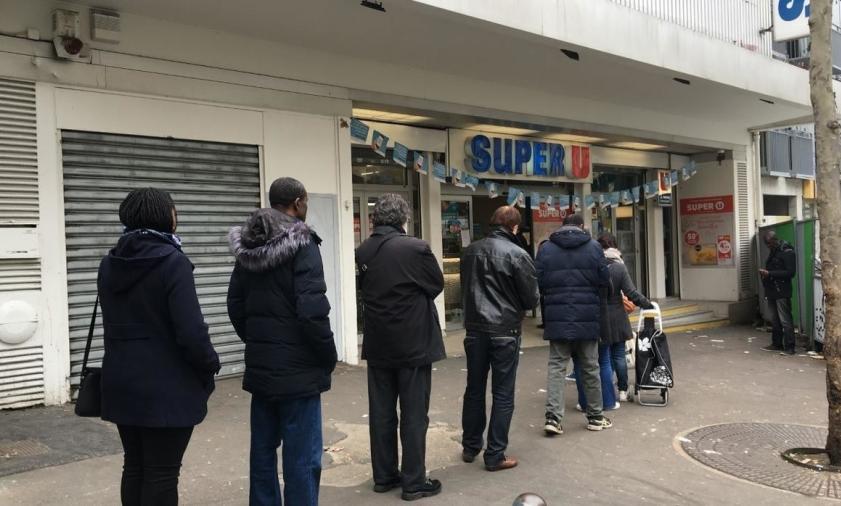
And you have to queue to get into the supermarket.
Online learning has also been introduced to allow students and teachers to continue completing their studies, as the education system in Paris is experiencing significant delays following the prolonged protests from the end of last year until the end of January this year, and now the Covid-19 pandemic.
Actively choose to stay.
Besides those who stayed behind out of necessity, many others chose to stay for a variety of reasons. Pham Ha My, a research student at Cambridge University, said that her life in the UK was actually fine, and whether she returned or stayed, she would need to quarantine in her room anyway, so everyone rushing to the airport at once wasn't a safe option.
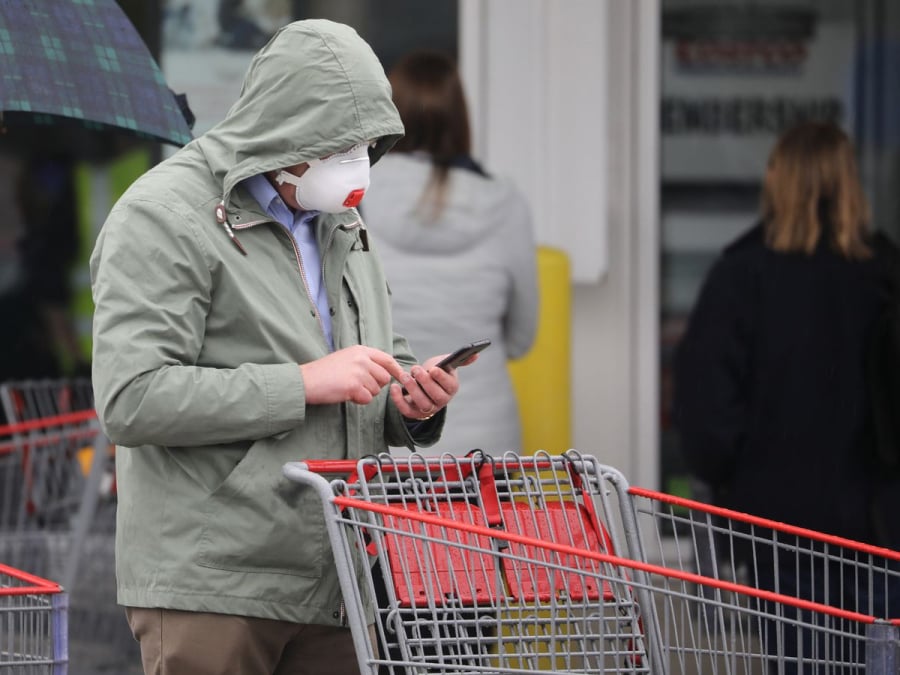
People in Britain have started wearing face masks when going out.
Speaking about her life situation, My shared her perspective and thoughts in detail: “Recently, I've read many posts about people 'liking quarantine' or 'being in quarantine is fun,' and all I can think about is how long Vietnam can handle this. The number of cases at home is increasing every day, mostly from people returning from abroad. At some point, resources will run out, kindness and tolerance will be taken for granted, and gratitude will disappear.”
Ha My also added that the British government has currently requested everyone to work from home, avoid large gatherings, and close schools. Hospitals are contacting research institutes to mobilize more biochemical kits. Some medical departments within hospitals are also gradually being converted into wards with beds, so there is no situation of neglecting the disease or leaving people to their fate. Individual businesses are also receiving government support to maintain operations during this difficult period. People are also starting to stock up on food, and supermarkets have designated time slots to prioritize elderly shoppers.
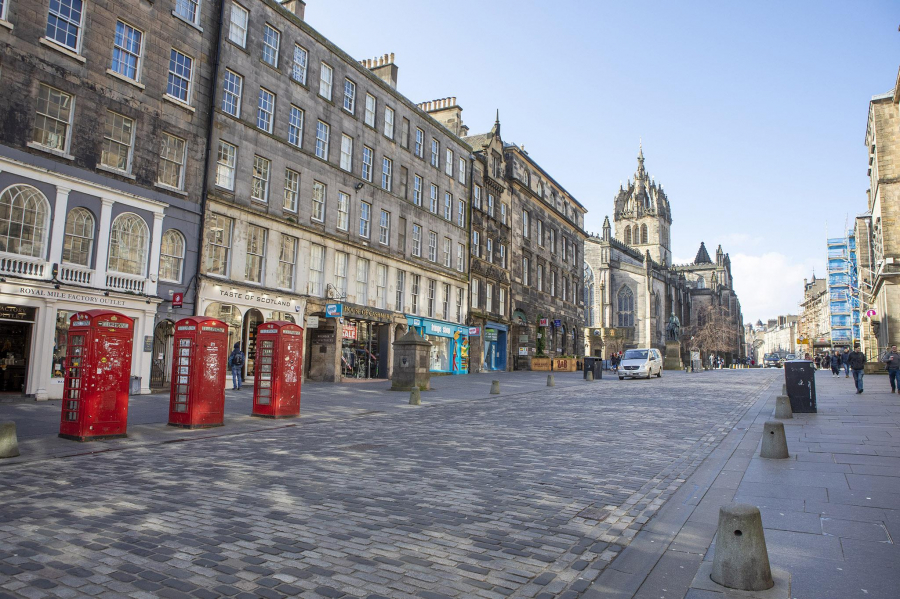
The streets were almost deserted.
“Luckily, things in Cambridge, where I live, were arranged quite quickly. Just yesterday and today, there wasn't a soul on the streets. Cambridge University has now entered a red alert phase. All teaching is being conducted online. The university encourages students to return home but also provides support if they choose to stay. Because I'm doing research and mainly use a computer, I haven't experienced as much disruption as those who have to go to lectures. Regardless, I hope everything will be over soon!” – Ha My shared.
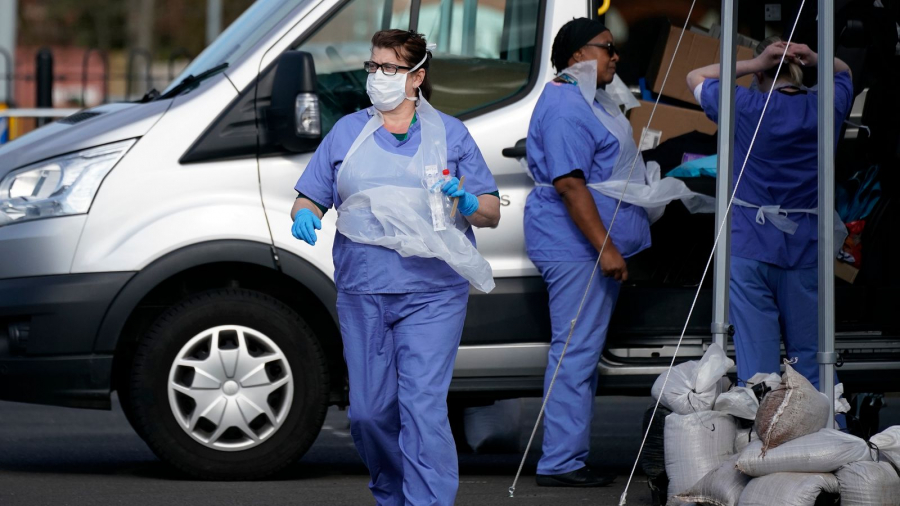
The healthcare system has been operating at a faster pace.
Although these are just three small stories from three Vietnamese students studying in Europe, they are enough to offer a completely different perspective on Vietnamese people who remain abroad. Whether their decision to stay abroad was proactive or passive, these Vietnamese people always strive to protect themselves and remain connected to their homeland.

 VI
VI EN
EN



